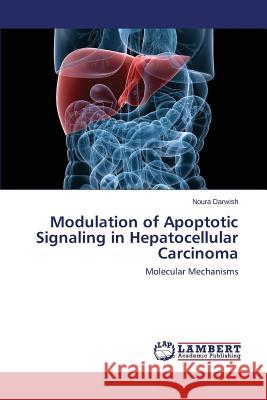Modulation of Apoptotic Signaling in Hepatocellular Carcinoma » książka
Modulation of Apoptotic Signaling in Hepatocellular Carcinoma
ISBN-13: 9783659495557 / Angielski / Miękka / 2014 / 128 str.
Hepatocellular carcinoma (HCC) is one of the most common malignancies, responsible for over one million deaths annually worldwide. Apoptosis represents a physiological way to eliminate excess cells during both liver development and regeneration. There are few current effective therapies for HCC. Moreover, patients with HCC usually have poor tolerance of systemic chemotherapy owing to underlying liver dysfunction. Hence targeting signaling pathways activated in HCC has been considered an approach to target HCC. Intense research over the past 20 years has provided detailed information about the molecular mechanisms and signaling pathways involved in hepatocarcinogenesis.
Hepatocellular carcinoma (HCC) is one of the most common malignancies, responsible for over one million deaths annually worldwide. Apoptosis represents a physiological way to eliminate excess cells during both liver development and regeneration. There are few current effective therapies for HCC. Moreover, patients with HCC usually have poor tolerance of systemic chemotherapy owing to underlying liver dysfunction. Hence targeting signaling pathways activated in HCC has been considered an approach to target HCC. Intense research over the past 20 years has provided detailed information about the molecular mechanisms and signaling pathways involved in hepatocarcinogenesis.











